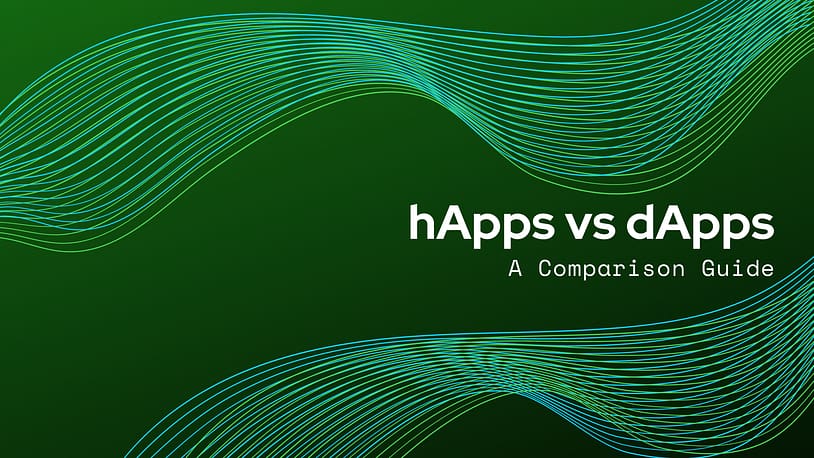Apps are incredible pieces of software that allow users to do thousands of different activities, from accessing a social network (Instagram), playing games (Steam), listening to music (Spotify), and more. The majority of the aforementioned apps have one major thing in common- they are centralized. When using nearly any app that connects to the internet, these applications send users’ data to a server, which is then processed in order to give the user results in just a couple of seconds. The problem with applications is that all activity that occurs inside them can be fully controlled and manipulated by the company who is running the servers for the app, giving them access to users’ data, funds, and more. The original response to this was to create dApps– decentralized applications where information is distributed across several nodes, so there is no central point of failure.
Ethereum popularized dApps because it created a way for users to transact using currencies inside them, allowing for decentralized betting applications, file-sharing dApps, and others. However, dApps and decentralized systems have their issues as well, as can be seen with the recent growth of the Ethereum network- mainly, slow speed, high cost of transactions, and an overall lack of scalability. In the wake of this, the hApp has been proposed.
hApps, or hybrid applications, are a type of single-page program that can run both centralized (server-based) and decentralized (peer-to-peer) processes, allowing for the best aspects of both systems to be integrated into the system. Sentivate is the innovative project that is pioneering the development of hApps. Here are a few advantages of hApps:
Top Benefits of hApps
Increased Speed: One of the primary problems with fully decentralized solutions is slow network speed. Waiting for confirmations is not ideal and can take minutes or hours, significantly damaging a user’s experience. hApps can delegate some processes to centralized servers for lightning-fast responses, while still maintaining important decentralized aspects like a user’s access to their own funds.
Cost-Effective: dApps often require processes that involve complex calculations, which can be immensely costly for the user. For instance, creating a new market for trading on the decentralized exchange Uniswap can cost upwards of $50. hApps allow for these expensive processes to be calculated on servers rather than on the decentralized network. In addition, the assets (pictures, CSS, javascript code) of hApps are streamed to clients on an as needed basis, so excessive duplicate code is never sent over the network. This modular system frees up bandwidth and significantly lightens server load.
Hybrid CDNs: Content delivery networks, commonly referred to as CDNs, involve a system where various nodes around the world store information about a given website or app. When a user requests this information, the node(s) geographically closest to that user are tasked with providing the content, vastly speeding up content delivery so information does not need to travel thousands of miles across countries. hApps will be able to use state-of-the-art Hybrid CDNs, which will feature an opt-in decentralized P2P CDN service in addition to the current centralized CDN solution. This will drastically increase the number of nodes available to users.
Universal Web Access: Sentivate is devising an upgraded version of the entire Internet known as the Universal Web, which will be specifically crafted to allow for seamless hApp integration. hApps will be able to easily use the decentralized/centralized processes of the Universal Web in addition to the centralized processes that are available on the existing web we use now. This will allow for an enhanced user experience and give developers more tools than ever to build out projects.
If you want to learn more about hApps, follow Sentivate’s development progress on their Twitter or join their Telegram to discuss this topic in further detail.




